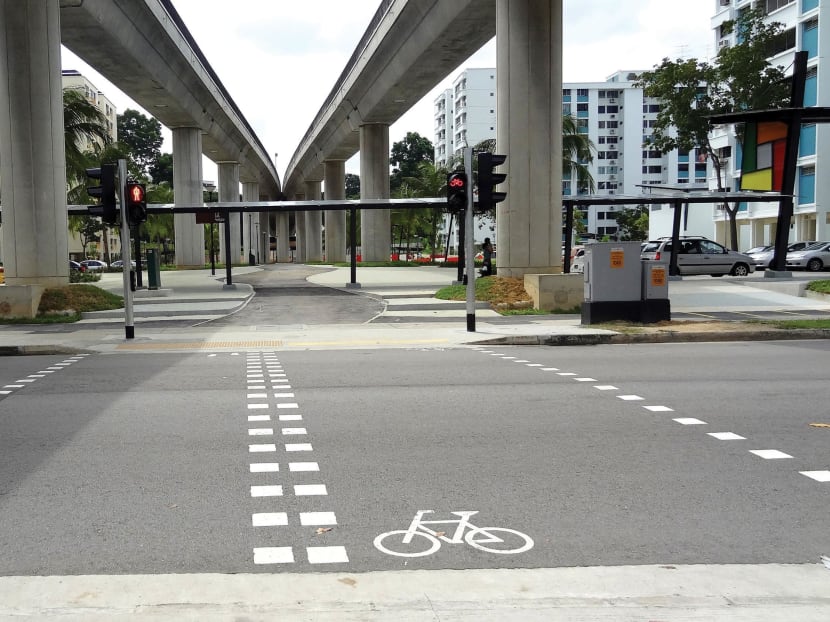Proposed cycling code ‘needs to reduce confusion’
SINGAPORE — The national code of conduct proposed for cycling should clear up confusion about regulations for cyclists and be accompanied by a review of traffic laws, while the authorities should also do more to educate the public on cycling etiquette, said those in favour of the Republic becoming more bicycle-friendly.
SINGAPORE — The national code of conduct proposed for cycling should clear up confusion about regulations for cyclists and be accompanied by a review of traffic laws, while the authorities should also do more to educate the public on cycling etiquette, said those in favour of the Republic becoming more bicycle-friendly.
In its draft Master Plan 2013 last week, the Urban Redevelopment Authority (URA) said it would develop this code of conduct to foster an environment that is conducive for cycling and safe for road users, including pedestrians and motorists, as it pushes ahead with plans to build a network of dedicated cycling paths around the downtown area to promote it as an alternative mode of commuting.
Mr Francis Chu, co-founder of cycling group LoveCyclingSg, said: “The number of bicycle users is growing rapidly and there are bound to be conflicts between cyclists and other road users. A simple and easy-to-follow code of conduct will help enhance mutual understanding and safety.”
Agreeing, Mr Steven Lim, President of the Safe Cycling Task Force, noted that such a code should clear up confusion about the dos and don’ts for cyclists and other road users.
“Drivers and pedestrians complain about cyclists riding along the zebra crossing — they assume we should dismount. But, under the Traffic Act, it is an advisory — not a rule,” he said.
A code of conduct for cycling in Singapore is not new: Tampines, which officially became Singapore’s first cycling town in 2010, has a code which requires cyclists to keep left, give way to pedestrians at all times, obey traffic laws and signs, and use lights that function well at night.
Countries like New Zealand and Holland also have such codes, which include guidelines for having proper brakes and reflective lighting. In New Zealand, it is illegal to text or talk on mobile phones while cycling.
The URA’s proposed code of conduct encompasses safety guidelines, such as wearing protective and correct gear and being alert to traffic conditions, as well as considerate cycling behaviour, such as keeping to the left of roads and not swerving suddenly.
With the authorities here planning to grow Singapore’s overall network of cycling paths from 230km to more than 700km islandwide by 2030, Bike School Asia founder Kenneth Wee said: “As we add more cycling towns to the mix and intra-town cycling increases, it may be time to review and standardise traffic laws and town-specific by-laws that affect the use and usability of cycling paths.”
Mr Bjorn Wong, 26, Editor of cycling magazine Spin Asia, noted that more could be done to educate cyclists, such as raising awareness of the signalling system for those on two-wheelers. “These things are not made known publicly. They’ve got campaigns for anti-littering. But this involves lives and there doesn’t seem to be a lot of emphasis on it,” he said.
Most cyclists also felt the code should ideally be a self-regulating one, under which cycling aficionados and other road users eventually learn how to be gracious towards one another on the road.
“One does not become a cycling nation simply by building cycling paths,” said Mr Wee. “Cycling as a way of life begins with observing basic cycling etiquette.”
Agreeing, Member of Parliament for Nee Soon GRC Lee Bee Wah said: “You don’t enforce it by penalising someone. But, as a community, you frown on those who don’t follow the code.”










